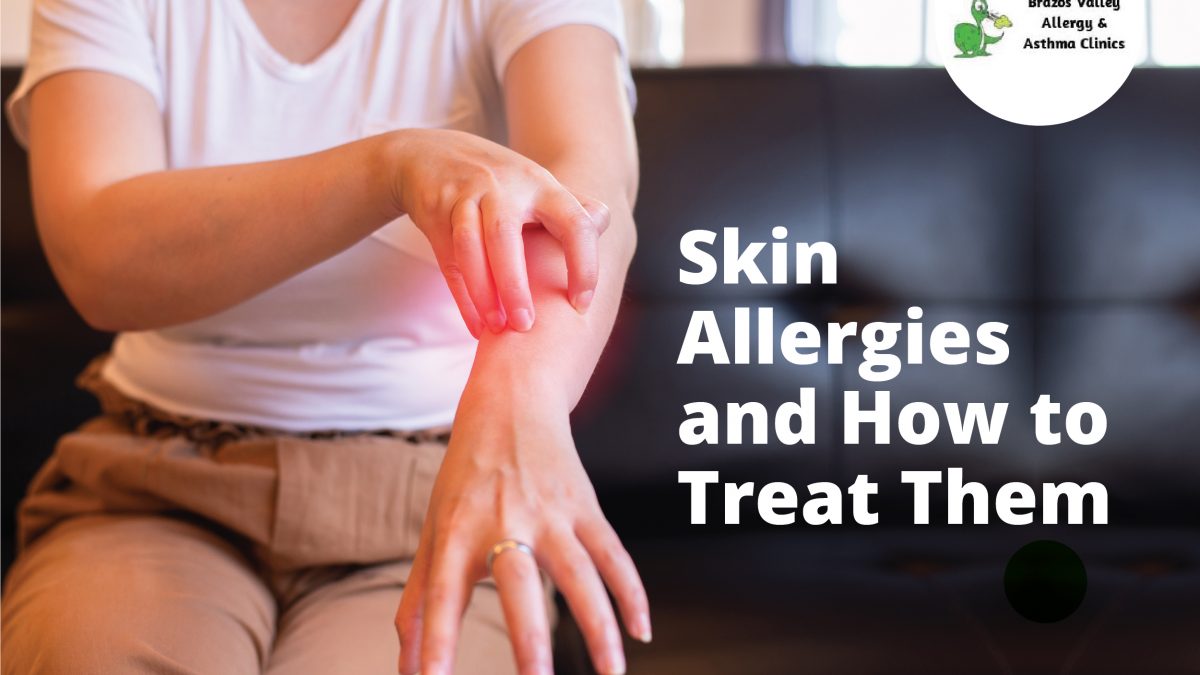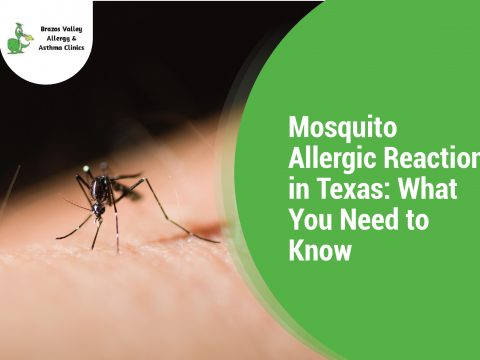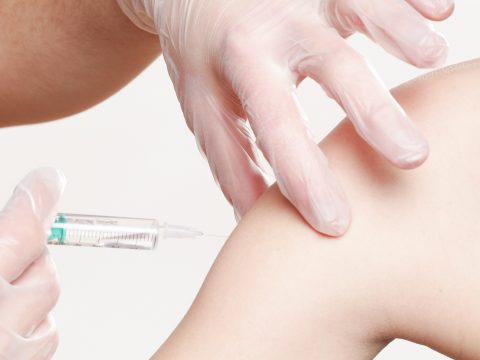- 979-485-9287
- office@bvallergy.com
-
 979-251-7804
979-251-7804
Skin Allergies and How to Treat Them

Cleaning Tips for People With Allergies
November 11, 2021
How to Survive Your Winter Allergies
December 21, 2021According to the American Academy of Dermatology Association, 84.5 million people in America have a skin disease. It’s a different case for people with skin allergies. If an allergen triggers an immune system reaction, a skin allergy happens. Without further ado, we’ll discuss skin allergies and how to treat them.
What is a Skin Allergy?
A skin allergy happens when the immune system reacts to something harmless to the body and causes skin irritation. It’s called an allergic reaction. Thus, an allergic reaction can result in hives, bumps, rash, itching, and itching. Some of the most common allergic skin conditions include:
- Eczema is a skin disease that is dry and itchy too often, causing allergies and inflammation. It’s an allergic skin condition that is more common in children than adults. Environmental and genetic factors contribute to eczema. Furthermore, it damages your skin’s barrier function, making it more sensitive and prone to infection.
- Allergic contact dermatitis is when a substance touches your skin and causes a reaction. Nickel, for example, is a metal that can cause severe skin reactions to those who are allergic to it. Another example is poison ivy, and many people are allergic to the oil found in it.
- Urticaria or hives is a condition where the skin develops raised red spots or welts. When a person eats a food they are allergic to; they may develop hives. It also happens when your body reacts to an allergen, even if you’re not allergic to it. As well as allergies, bug bites can also trigger hives.
- In angioedema, fluid builds up in the deeper layers of skin that cause swelling. These reactions often occur in the eyelids, lips, and throat and often go together with hives.
- Hereditary angioedema (HAE) is a rare condition. It causes swelling in many parts of the body. If you have this, go and see a skin specialist quickly.
- Contact dermatitis is a painful or itchy skin rash due to contact with an allergen. Soaps, detergents, shampoos are usual things that trigger contact dermatitis. Although it is not contagious or life-threatening, the rash can be very uncomfortable.
Skin Allergy Symptoms
The different types of skin allergies present different kinds of symptoms:
- Eczema causes an itchy, red, scaly, dry rash, bumps, swelling on the face, hands, elbows, and knees.
- Allergic contact dermatitis causes an itchy and painful rash. Both raised bumps and blisters may appear. It also goes with swelling, blistering, and sometimes with stinging pain. Depending on what is causing the reaction, your skin may react right away or 48 hours later.
- Hives are red, raised welts, or bumps on the skin. Hives may indicate a severe allergic reaction.
- Angioedema is swelling with a red rash underneath the skin. If your eyelid swells due to angioedema, your eye may remain shut. It’s an emergency if it happens in the throat because the swelling makes it difficult to breathe. A more severe case can cause the swelling to spread throughout the body.
- Contact dermatitis is a red rash with severe itchiness. Other symptoms include bumps, blisters, and scaly skin.
- Hereditary angioedema’s most common symptom is swelling of the skin. Swelling occurs most often in the limbs, face, intestinal tract, and airways. Other symptoms include nausea, headache, muscle aches, and abdominal pain.
Before getting treatment for skin allergies, ask your physician. The treatment will depend on what kind of allergy you have.
Skin Allergy Treatment
Skin allergy symptoms like itching and swelling tend to subside without treatment within a week or two. Still, you can ease your skin allergy symptoms at home.
- Oatmeal has some bioactive properties, including antioxidants and anti-inflammatory agents. All of these can relieve itching caused by allergic reactions. As a remedy for skin allergies, oatmeal baths or poultices are popular. Both use powdered oatmeal. You can also use colloidal oatmeal. Since it is an oatmeal powder, it blends well with water. For some people, it soothes inflamed skin. Other people may have reactions to it. Don’t use hot water; it can make your skin dry.
- If you have rashes, don’t wear tight clothes. They can cause severe irritation. Wear loose, breathable fabrics, such as cotton.
- Taking a cool bath or compress can relieve the pain of stinging or burning rashes.
- If your symptoms are severe, apply a moist dressing. Choose a piece of clothing made of soft cotton, like a long-sleeve T-shirt. Then soak it in water, wring it out, and put it on.
Skin Allergies Medicine
Here are a few skin allergy medications:
- A topical calcineurin inhibitor helps relieve the itching.
- The most common anti-allergy medication is antihistamines. You can buy antihistamines over-the-counter or prescribed. Some of these antihistamines include Benadryl (diphenhydramine), Zyrtec (cetirizine), and Claritin (loratadine).
- Topical corticosteroids are helpful with itching in small areas.
- Calamine lotion or hydrocortisone also helps with itchy skin.
You can alleviate the itching and stop the swelling with over-the-counter products and home remedies. However, see a doctor if your skin problem does not disappear on its own. Something more serious could be going on.
BVAllergy Can Help
The most common type of allergy treated by an allergist/immunologist is a skin allergy. Take action now to prevent skin allergies from getting worse.
Paul Jantzi has spent more than 13 years serving the south-central Texas region as an allergist. He is board-certified in allergy and immunology with prior specialty training in pediatrics and internal medicine. Schedule a meeting with him to learn more about immunotherapy and how it can help with your allergy symptoms.




